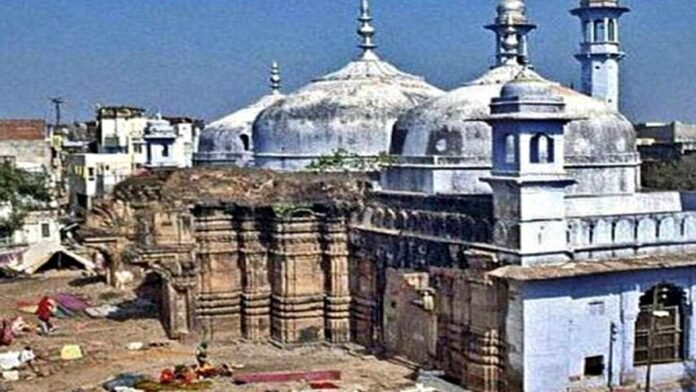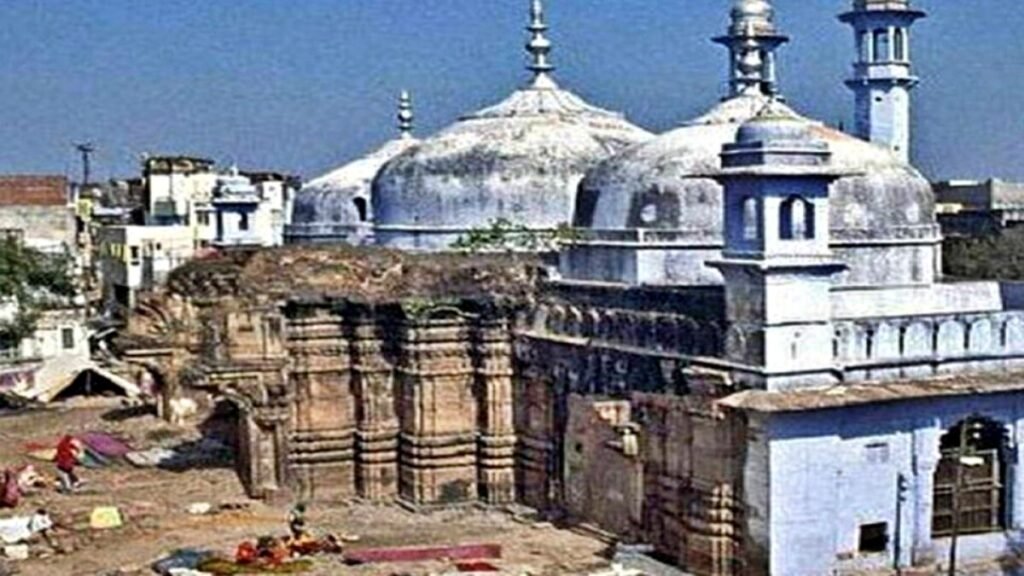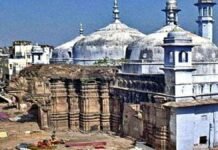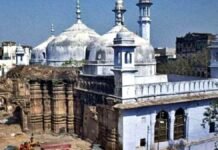
New Delhi: A recent report by the Archaeological Survey of India (ASI) has confirmed that a Hindu temple existed before the construction of the Gyanvapi Mosque in Varanasi, one of the oldest and most sacred cities for Hindus. The report, which was based on a scientific survey of the site, has triggered a heated debate between the Hindu and Muslim communities over the ownership and fate of the disputed structure.
The ASI report was submitted to a local court on Monday, following a petition filed by a Hindu group in 1991, seeking the restoration of the temple. The report stated that the mosque was built on the ruins of a large Hindu temple, which was demolished by the Mughal emperor Aurangzeb in the 17th century. The report also said that the temple had a central chamber and three other chambers on the north, south, and west sides and that some of the pillars and pilasters of the temple were reused in the mosque with minor alterations.
The report has been welcomed by the Hindu Mahasabha, a right-wing organization that claims to represent the interests of the Hindus. Its president, Swami Chakrapani Maharaj, appealed to the Muslim side to hand over the rights of the Hindus and set an example of harmony. He said that the ASI report was decisive and clear and that the present Muslim generation should not support the wrongdoings of the Mughals.
However, the report has been questioned by the Anjuman Intezamia Masjid (AIM), the mosque management committee, which said that the report was not a final verdict, but only a suggestion. The AIM said that the report covered about 839 areas and that it would take time to study and analyze it. The AIM also said that it would seek opinions from experts and send them to the court for consideration. The AIM asserted that the mosque was built by a noble Muslim of Jaunpur, Hez Gar Muslim, in the 9th century, and that the Muslims had been offering prayers there for about 150 years before the reign of Emperor Akbar. The AIM said that its responsibility was to keep the mosque occupied, and appealed to the Muslims to maintain peace.
The ASI report has added a new dimension to the long-standing dispute over the Gyanvapi Mosque, which is located next to the Kashi Vishwanath Temple, one of the most revered shrines for Hindus. The dispute dates back to the colonial era when the British government erected a wall between the mosque and the temple to prevent communal clashes. The dispute resurfaced in the wake of the Ram Janmabhoomi-Babri Masjid controversy, which culminated in the demolition of the Babri Masjid in Ayodhya by Hindu activists in 1992, and the subsequent construction of the Ram Temple on the same site in 2020, following a Supreme Court verdict.

The ASI report has also raised concerns about the preservation and protection of the historical and cultural heritage of the site, which is of immense value to both communities. The report has highlighted the need for a comprehensive and sensitive approach to resolve the dispute, keeping in mind the sentiments and rights of both parties, as well as the larger interest of the nation.





















































